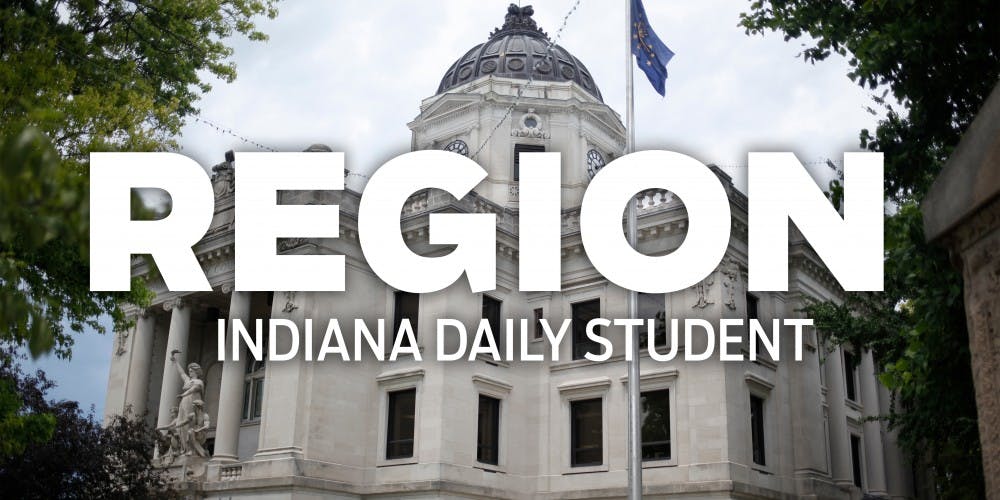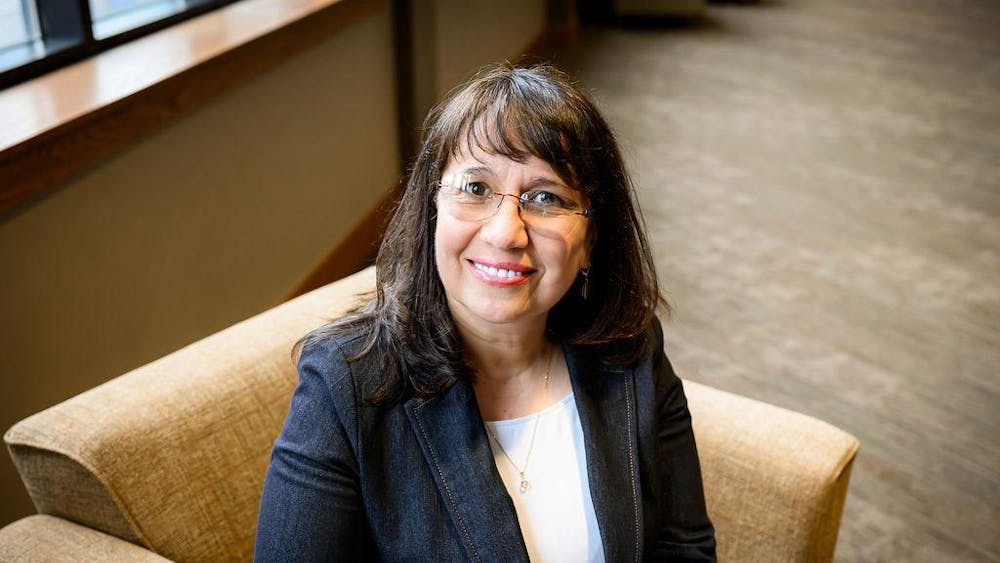When senior Tyra Meely slipped into the pews beside her family at her old church several years ago, she didn’t expect politics to be involved.
“He deserves our vote because he’s a patriot, and he supports life,” the pastor said about anti-abortion Vietnam War veteran John McCain during his 2008 campaign for president.
Meely said during the sermon the pastor told listeners that as Christians they should vote for McCain. A religious leader making a voting recommendation was something she saw as inappropriate for a religious organization.
“It didn’t rub me the right way at all,” she said. “It felt so uncomfortable.”
Meely said religious organizations that endorse specific candidates create a toxic environment for believers, which divides the community and alienates its members.
Like Meely, 66 percent of Americans believe houses of worship should not favor one candidate or another, according to a study by Pew Research Center released earlier this month.
In fact, in some cases, it is illegal for churches to endorse candidates. While churches are offered the First Amendment right to speak out on issues, churches that have filed as a nonprofit are barred from endorsing candidates in order to keep their tax-exempt status.
Rabbi Sue Silberberg said while she refrains from endorsing candidates in order to keep the Helene G. Simon Hillel Center’s nonprofit status, she also morally opposes such endorsements.
“It’s okay and inevitable for religion to affect political views, but never should a religious leader tell someone who to vote for,” Silberberg said.
However, Americans are more divided about whether or not religious organizations should give statements about political matters at all.
While 49 percent of Americans say houses of worship should stay out of politics, 47 percent say they should express their views, according to the same Pew research study.
Senior Arielle Martin said she is happy with how her own nondenominational Christian church, City Church For All Nations, approaches political issues. While it does not pressure students to vote a certain way, Martin said it also does not shy away from speaking about politics that relate to Christian doctrine and directly affect believers.
“They’re not scared of having those necessary conversations,” Martin said.
As Chi Alpha treasurer, Meely said Chi Alpha, like City Church, does discuss politics. However, it speaks about political ideology in a general sense rather than bringing up specific policies and candidates.
Chi Alpha often speaks as a proponent for diversity and the Black Lives Matter movement, Meely said. However, it does not directly oppose politicians or policies that may not adhere to the same principles of diversity.
“It’s our responsibility to call attention to general issues and make sure our members are knowledgeable of the issues,” Meely said. “But we don’t want to go and attack certain politicians and push away some of our members.”
On election day this year, Meely said Derek Britt, the director of Chi Alpha, gave a speech about why some Christians voted for Hilary Clinton while others voted for Donald Trump. At the end of the speech, he revealed that he didn’t vote at all.
Meely said she’s not sure if she thinks religious leaders should tell members how they did or didn’t vote, but she said what most listeners got out of the speech was an understanding of both sides of the political divide.
“He did a great job bridging gaps, which is necessary to build a strong community and is the responsibility of religious groups dealing with all that political divisiveness,” Meely said.
Silberberg, on the other hand, said she feels strongly that she should not reveal how she voted to students so she can separate herself as a citizen from herself as a religious leader on campus.
However, Silberberg said she is also happy to approach politics in a general sense.
Unlike some faith communities, she also accepts religious groups speaking out about specific policies that don’t adhere to their religious principles as long as they don’t call out specific politicians. Most recently, Silberberg stood in direct opposition to President Trump’s recent travel ban on individuals from seven Muslim-majority countries. She has also supported the formation of Students United Against Hatred, a campus organization meant to combat intolerance in the current political climate.
“We’re not anti-any candidate or anti-any politician,” Silberberg said. “But if there’s some policy that is against what we fundamentally believe to be right and just, we will fight against it.”
Silberberg said the divisive nature of the current political climate means there is even more responsibility for religious organizations to speak directly about politics.
“With all that’s going on, it’s even more important for us to speak and educate people in our religious communities,” Silberberg said. “It is a moral obligation and a responsibility to promote what’s right and just.”
She said many religious leaders, especially recently, take this too far by backing politicians themselves. For example, Wayne Grudem of the Southern Baptist Church and Jack Graham of Prestonwood Baptist Church in Plano, Texas, endorsed Trump while Thabiti Anyabwile of Anacostia River Church in Washington, D.C., claimed Trump’s presidency would be “catastrophic” in a blog post.
Since his inauguration, many religious leaders have continued to be vocal in their support and opposition to Trump, which Silberberg said can be problematic.
“If a politician does something that goes against our values, we will oppose it,” Silberberg said. “But I wouldn’t feel comfortable opposing a specific politician as a representative of Hillel as a whole.”
Meely said she also recognizes this increasingly blurry boundary between religious organizations and outright support or opposition to politicians.
“We should be discussing the big-picture issues,” Meely said. “Not attacking politicians and alienating people but engaging them in difficult conversations and having a real back-and-forth discussion on what we believe.”





